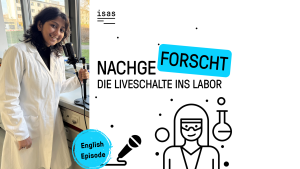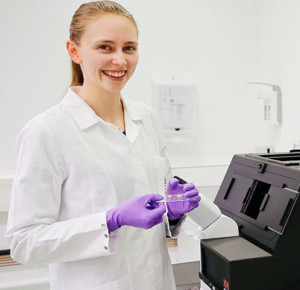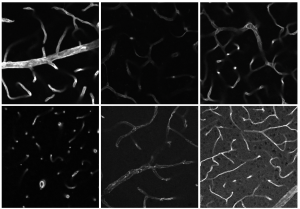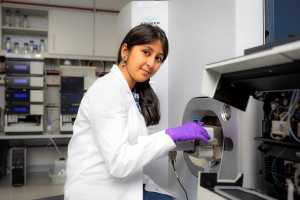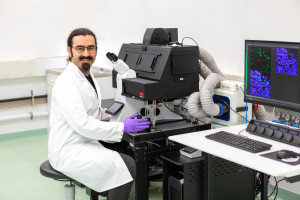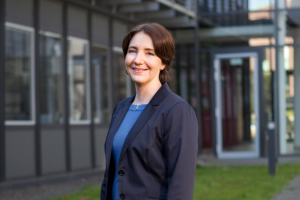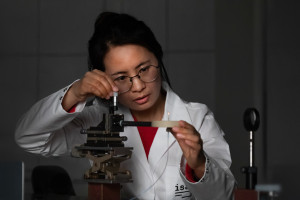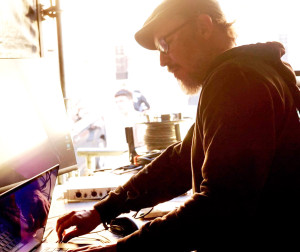Dortmund, 30th August 2022
In this interview, Prof Dr Tienush Rassaf, Director of the Angiology and Cardiology Clinic at Essen University Hospital, speaks about the background of the research into immune checkpoint inhibitors (ICIs) and their effect on the heart.
As a cardiologist, you diagnose and treat people with various heart conditions. At the same time, you have also been working for several years on cancer therapies based on the use of ICIs. What is the relationship between cancer therapy and heart disease?
Rassaf: Cancer patients treated with ICI often have to deal with more or less severe adverse reactions that can affect various organs, not infrequently the heart. We want to understand the exact cause of this.
How often do these adverse reactions occur?
Rassaf: In the first year of their treatment, up to ten percent of cancer patients exhibit severe immune-mediated adverse reactions.
In the 2021 paper published in the European Heart Journal, you and your co-authors were able to show that heart damage can be avoided if tumour necrosis factor-α, or TNF-α, is inhibited beforehand. How did you come to explore this connection?
Rassaf: In previous studies, there was evidence of TNF-α involvement in the intestinal tract and experiments that yielded similar results. This is the approach we have taken with hearts over the past four years. Our goal continues to be, first and foremost, to develop a therapeutic approach with which we can both treat the cancer effectively, with new drugs for example, and exclude the negative sides of the treatment such as ad-verse reactions and consequential damage. The aim is to prolong the lives of cancer patients without causing additional damage through immunotherapy.
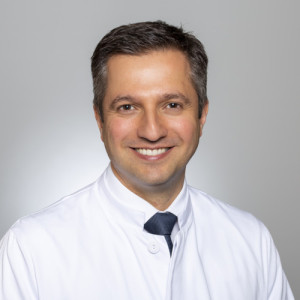
Prof Dr Tienush Rassaf is Director of the Clinic for Angiology and Cardiology at Essen University Hospital.
© Universitätsklinikum Essen
Article Recommendation
Michel L, Helfrich I, Hendgen-Cotta UB, Mincu R-I, Korste S, Mrotzek SM, Spomer A, Odersky A, Rischpler C, Herrmann K, Umutlu L, Coman C, Ahrends R, Sickmann A, Löffek S, Livingstone E, Ugurel S, Zimmer L, Gunzer M, Schadendorf D, Totzeck M, Rassaf T. Targeting early stages of cardiotoxicity from anti-PD1 immune checkpoint inhibitor therapy. European Heart Journal, Bd. 43, Nr. 4, S. 316–329. https://doi.org/10.1093/eurheartj/ehab430
Do you have other »candidate« drugs in mind besides TNF to prevent damage to the heart or other organs during tumour therapy?
Rassaf: Yes, there are already others under consideration. We want to conduct new studies on them in the preclinical area, for example in animal models or cell cultures, during 2022, so the results are naturally not yet available. We are working closely with ISAS on this research. The institute’s multi-omics analyses provide us with important biochemical and physiological data, for example for understanding adverse reactions. In the coming years, we would like to devote ourselves to the question of exactly how immunotherapies work.
Are there any other research partners in this regard?
Rassaf: Yes, in addition to ISAS, we cooperate here on site with the Tumour Clinic and Nuclear Medicine or Radiology. We also have an exchange with Charité – Universitätsmedizin Berlin and the Cologne University Hospital.
What other projects are you currently researching?
Rassaf: We currently have two studies underway. The first addresses the question of how to prolong the lives of cancer patients with cardiac damage. The second study concerns exercise, or more specifically, exercise as a possible means of preventing premature heart damage.
How do you envisage your scientific work in the next few years?
Rassaf: We advertised two joint professorships in cooperation with ISAS in 2021. Both could be titled »Individualisation of Medicine«. One of these professorships is located entirely at ISAS in Dortmund. The task there will be to examine samples from patients in detail using multi-omics analyses in order to obtain new, detailed information on the metabolism of individual patients. The other professorship at the University Hospital will build on this. It should lead to the development of new treatment procedures in cardiology. Our common goal is ultimately a tailor-made therapy, individually adapted to each patient.
PROF. DR. TIENUSH RASSAF
ist seit 2015 Direktor der Klinik für Kardiologie und Angiologie am Westdeutschen Herz- und Gefäßzentrum der Universität Duisburg-Essen. Zum Behandlungsspektrum seiner Klinik gehören alle Bereiche der kardiovaskulären Medizin inklusive sämtlicher Therapien bei koronarer Herzerkrankung, Herzrhythmusstörungen, Herzklappenerkrankungen, Herzinsuffizienz, Aortenerkrankungen, angeborenen Herzfehlern sowie die Notfall- und Intensivmedizin. Rassaf ist einer der Initiatoren der 2018 gegründeten bundesweiten Arbeitsgruppe Onkologische Kardiologie.
(The interview was conducted by Dr Thomas Krämer.)
